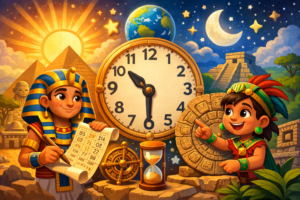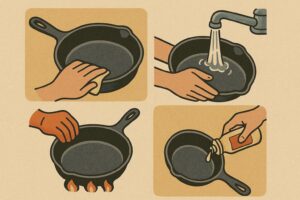Hey everyone, let’s dive deep into why we celebrate the 4th of July. It’s more than just fireworks and barbecues—it’s about the birth of our nation and the fight for freedoms we hold dear.
Taxes and No Say
In the mid-1700s, the British government started imposing a series of taxes on the American colonies, even though the colonies had no representation in the British Parliament. This started with the Stamp Act of 1765. This act required that many printed materials in the colonies be produced on stamped paper produced in London, carrying an embossed revenue stamp. These materials included legal documents, magazines, playing cards, newspapers, and many other types of paper used throughout the colonies.
The Stamp Act was met with intense opposition. Colonists argued that only their own representative assemblies could tax them, and they saw the act as a direct attempt by England to raise money in the colonies without the approval of the colonial legislatures. This led to widespread protests and the formation of groups like the Sons of Liberty, who would play a significant role in pushing back against British control.
Following the repeal of the Stamp Act, the British government introduced the Townshend Acts in 1767. These acts imposed duties on imported goods such as glass, paint, paper, and tea. The revenue generated was used to pay the salaries of British officials in the colonies, which further angered the colonists who saw it as another example of taxation without representation. The widespread boycotts and protests that followed, including the famous non-importation agreements, were significant in uniting the colonies against a common enemy.
Boston Massacre
Tensions between the colonists and British soldiers reached a boiling point on March 5, 1770. A group of colonists in Boston began harassing a British sentry, and the situation quickly escalated. More soldiers arrived to support the sentry, and the crowd grew larger and more hostile. Amidst the chaos, the soldiers fired into the crowd, killing five colonists and wounding several others. This event became known as the Boston Massacre.
The Boston Massacre was a significant turning point because it fueled the colonists’ anger and resistance towards British rule. The incident was heavily publicized by leaders like Samuel Adams and Paul Revere, who used it as a propaganda tool to rally colonists to the cause of independence. The deaths of these men were not in vain; they highlighted the brutality of British rule and the colonists’ desire for liberty and justice.
Boston Tea Party
In 1773, the British government passed the Tea Act, which granted the British East India Company the exclusive right to sell tea to the colonies without the usual import duties. This not only hurt local merchants but was also seen as another example of taxation without representation.
On the night of December 16, 1773, a group of colonists, disguised as Mohawk Indians, boarded three British ships in Boston Harbor and dumped 342 chests of tea into the water. This event became known as the Boston Tea Party. It was a direct and bold act of defiance against British rule and an important step towards revolution.
The Boston Tea Party demonstrated the colonists’ willingness to take drastic measures to defend their rights and resist British oppression. It also united the colonies in their struggle for independence, as news of the event spread quickly and inspired similar acts of resistance in other colonies.
Intolerable Acts
In response to the Boston Tea Party, the British government enacted a series of punitive measures known as the Intolerable Acts in 1774. These acts were meant to punish the colonies, particularly Massachusetts, and to restore British authority. The Intolerable Acts included several key measures:
The Boston Port Act: This act closed the port of Boston until the East India Company was repaid for the destroyed tea. This effectively strangled the economy of Massachusetts and created widespread hardship.
The Massachusetts Government Act: This act altered the Massachusetts charter, reducing the power of local assemblies and increasing the power of the royal governor. It also banned town meetings, which were a crucial aspect of colonial self-governance.
The Administration of Justice Act: This act allowed British officials accused of crimes in the colonies to be tried in Britain or another colony, where they were more likely to receive a sympathetic trial. Colonists saw this as a way for British officials to escape justice.
The Quartering Act: This act required colonists to house and supply British soldiers, even in private homes. This was seen as a further violation of the colonists’ rights.
The Quebec Act: Though not directly related to the Boston Tea Party, this act extended the boundaries of Quebec and granted greater religious freedom to Catholics. Colonists viewed this as a threat to their own expansion and religious freedom.
The Intolerable Acts were the final straw for many colonists. They led to the formation of the First Continental Congress, where representatives from the colonies gathered to coordinate their resistance to British rule. This unity and collective action were critical steps towards the eventual declaration of independence.








